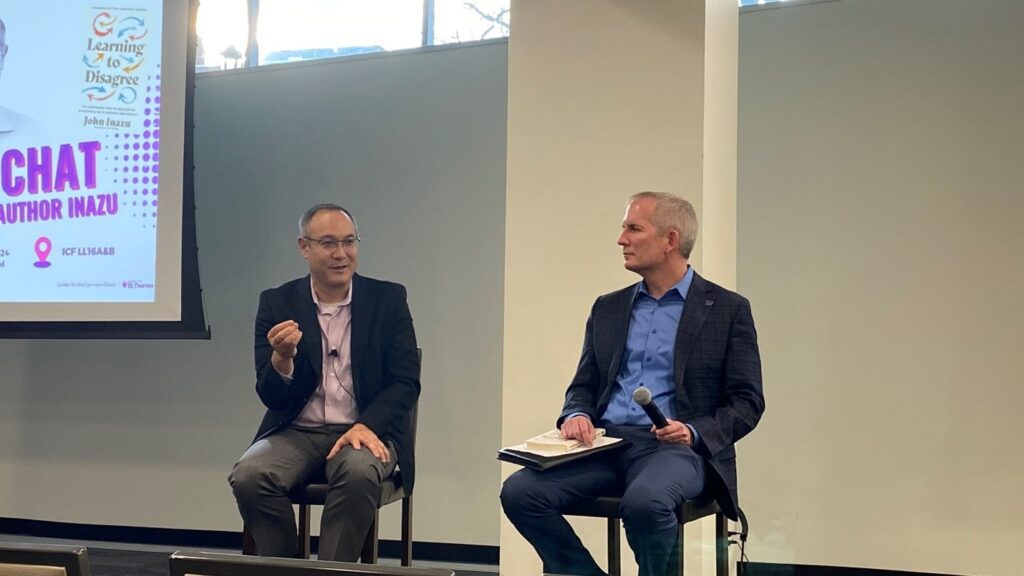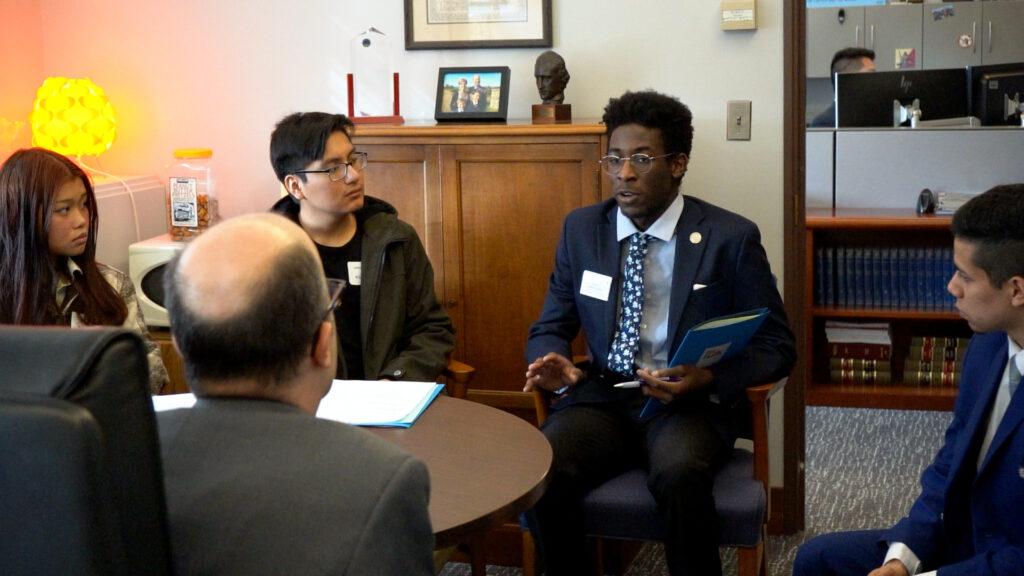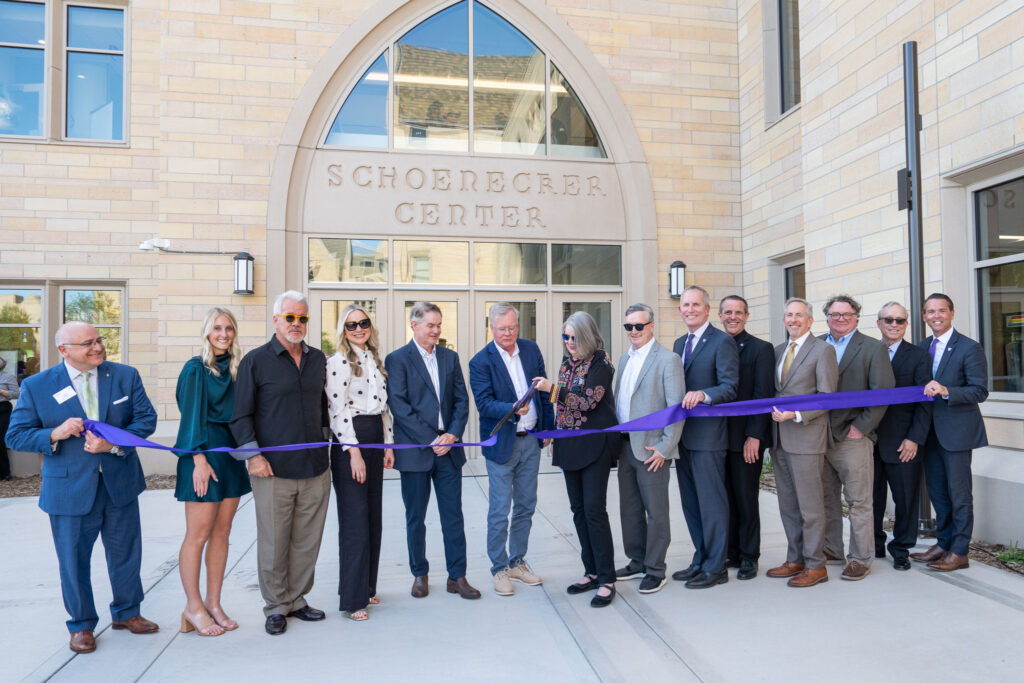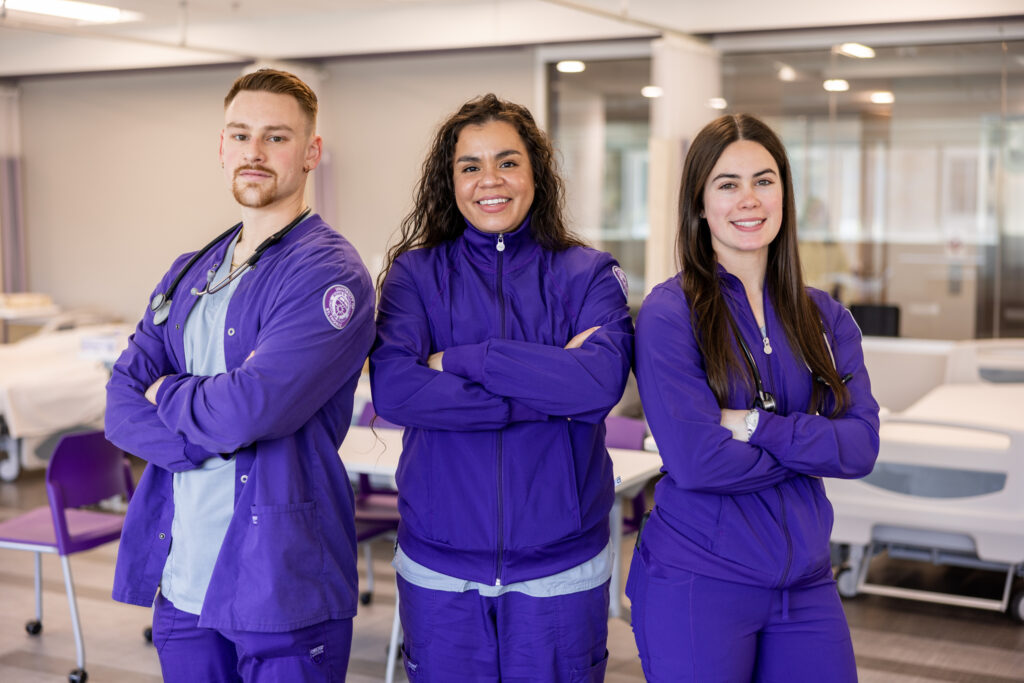University of St. Thomas student Maddy Orr and staff member Manuela Hill-Muñoz recently attended a conference at the Church of the U.N. in New York City to learn about the World Day of the Poor, as established by Pope Francis in 2016. The conference was organized by Catholic Relief Services (CRS, the official international Catholic agency of the U.S.), Caritas Internationalis, and Fordham University.
Orr is a member of the Global Justice Movement through CRS at St. Thomas, which serves as the university chapter for student engagement with CRS through the Center for the Common Good. The Global Justice Movement’s name encompasses not only the organization’s principles but also its actions.
In his opening statement, Monsignor Robert Murphy, deputy permanent observer of the Holy See to the U.N., reminded attendees of the calling to assist those who are not yet receiving help. He said, “In churches and cathedrals worldwide, the doors of mercy are closing.”
In a time marked by considerable division in the U.S. and across the globe, churches are regrettably not immune to this prevailing trend.
“With so many of our fellow human beings in need, we cannot allow our assumptions, ideologies and prejudices to hinder our efforts to provide others with the same compassion and dignity we would expect in times of crisis,” said Orr, a sophomore majoring in political science and government.
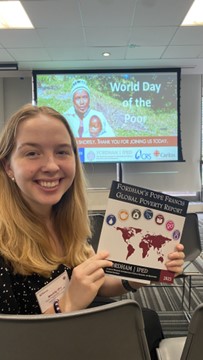
The Pope Francis Poverty Index, released by Fordham University's International Political Economy and Development (IPED) program, assesses both material and spiritual well-being. Material well-being encompasses access to essentials such as water, housing, food and employment, while spiritual well-being includes education, religious freedom and gender equality.
The presentation on the 2023 Pope Francis Poverty Index revealed improvements in access to water but deterioration in most other indicators. At the conference, it was evident that gender equality and religious freedom had notably worsened in recent years, likely due to the pandemic. The pandemic also adversely affected literacy rates and food accessibility.
Following the presentation, a student from Villanova University emphasized the significance of sustainability in these projects. Sustainability in this instance refers to the long-term viability of projects and constructions in serving communities. For instance, projects aimed at providing clean water to a community must remain functional for years to come. Moreover, issues that do arise should be swiftly resolved by individuals with appropriate training.
During the second learning session, Julie Ideh, global technical director of agriculture and livelihoods at CRS, explained why the current global food crisis is unparalleled. According to CRS, 783 million people suffer from hunger, with COVID-19, climate change and conflict identified as the primary drivers of food insecurity.
Climate change is causing more extreme weather events, altering weather patterns and growing conditions, and leading to either excessive or insufficient water. Conflict results in displacement, infrastructure damage and challenges in accessing markets. COVID-19 has led to job losses, affecting people’s ability to purchase food.
Ideh highlighted that institutions and systems possess the capability to either mitigate or exacerbate the food crisis. For example, Guatemala has enacted a national law mandating schools to source at least half of their food from local farmers, ensuring that children have access to nutritious food that supports their physical growth while also bolstering local farmers’ market opportunities.
CRS excels at empowering communities to rebuild and enhance their well-being in the long term. They prioritize educational opportunities and training tailored to the unique needs of each community. Subsequently, community members take the lead in running each program, thereby fostering stronger community relationships and resilience.
“Part of the focus of this conference was to gather students from different CRS university chapters to engage in advocacy,” said Orr. At the conference, participants were invited to practice advocacy by reaching out to their congressional representatives to support the president’s request for crucial humanitarian aid for the people in Ukraine and Gaza, who are enduring immense suffering due to ongoing conflicts. Orr said that the Global Justice Movement organizes advocacy sessions and educational events on the St. Thomas campus to support student engagement.
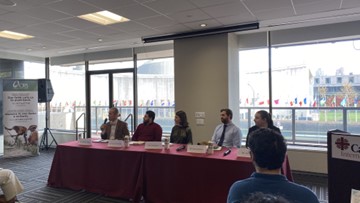
The conference concluded with a career panel designed to inspire students from the various CRS university chapters to consider a career in global development work. Efforts like those of Caritas, CRS and countless other organizations aim to support all sisters and brothers across the world.
“It’s so inspiring to share a conference like this with a student like Maddy; she is passionate about contributing to our world and discerning what the common good looks like for everyone," Hill-Muñoz said. “The 2023 World Day of the Poor Conference continues to be an extremely powerful and valuable opportunity for learning, engagement, and connection.”

